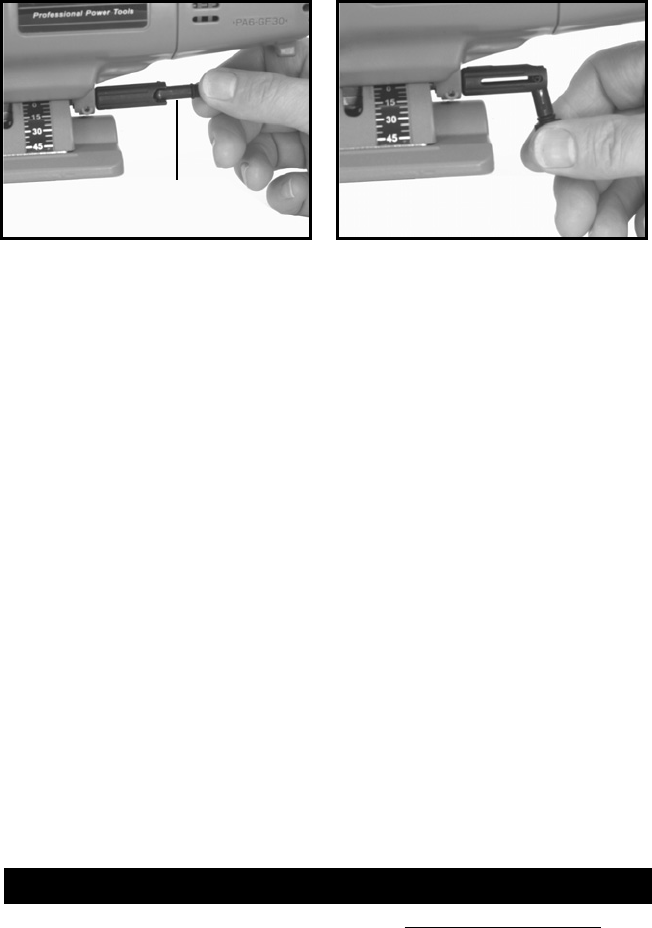
13
To tilt the base, pull the lever out of the end of clamp screw (A), Fig. 10, rotate
the lever toward the front of the saw, Fig. 11, and turn the lever counter-
clockwise until the base can be tilted. Set the base at the desired setting and
tighten the screw by turning the lever clockwise.
NOTE: After each 90 degree or half turn, it will be necessary to move
the lever back to the opposite side of the saw.
USING THE SAW
First, secure the material in a bench vise or with clamps to the work table. This
is especially important when sawing small pieces or thin material. As the work
progresses in scroll or curved cut-out pieces, the material can be readjusted
to accommodate the movement of the saw. If the work is large enough it can
be held by hand across saw horses. The saw cuts freely with only light forward
feed pressure on the tool. Forcing the saw will not make it cut faster.
To start the cut, secure the work, mark the line of cut clearly, place the forward
edge of the saw base firmly on the edge of the material, start the motor and
move the blade into the work.
DO NOT FORCE, LET THE SAW DO THE WORK. Move the machine forward
only rapidly enough to keep the blade cutting.
You will find that the open throat and clear forward edge of the saw base make
it easy to follow the line and cut closely to the pattern. You need not cut
oversize for hand finishing or sanding on most materials.The smoothness of
cut will often make further sanding unnecessary
Fig. 10 Fig. 11
A
For assistance with your tool, visit our website at www.porter
-cable.com
for a
list of service centers or call the Porter-Cable help line at 1-800-487-8665.
TROUBLESHOOTING


















